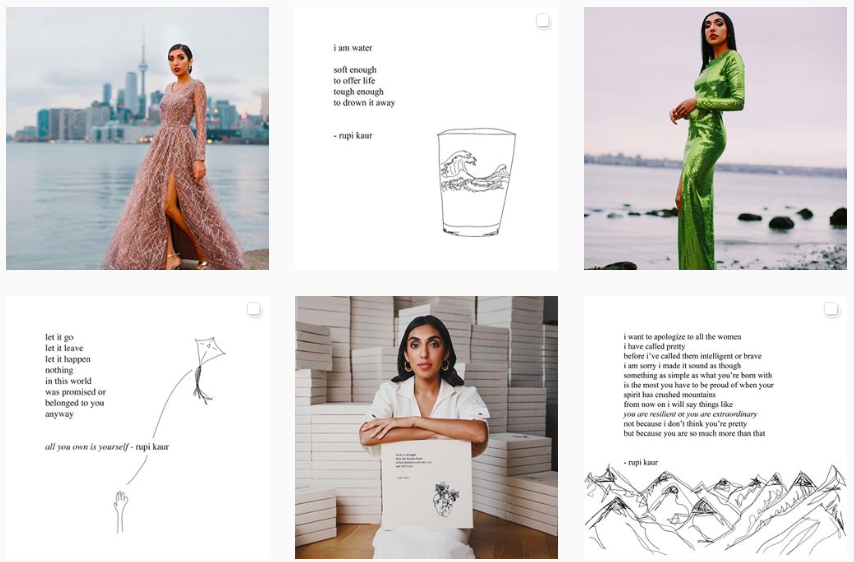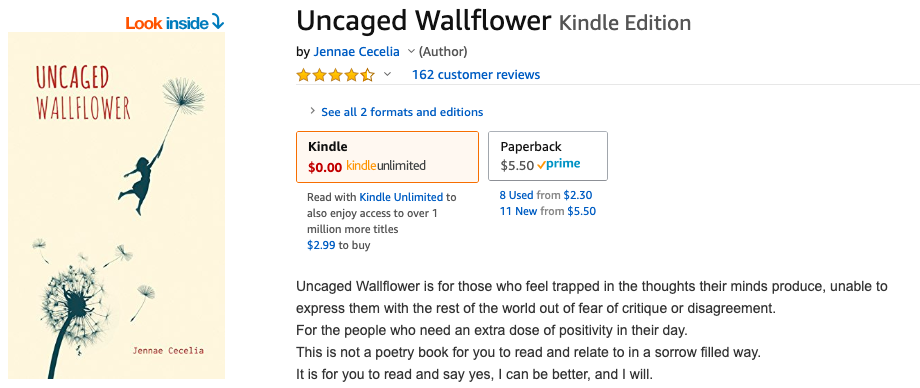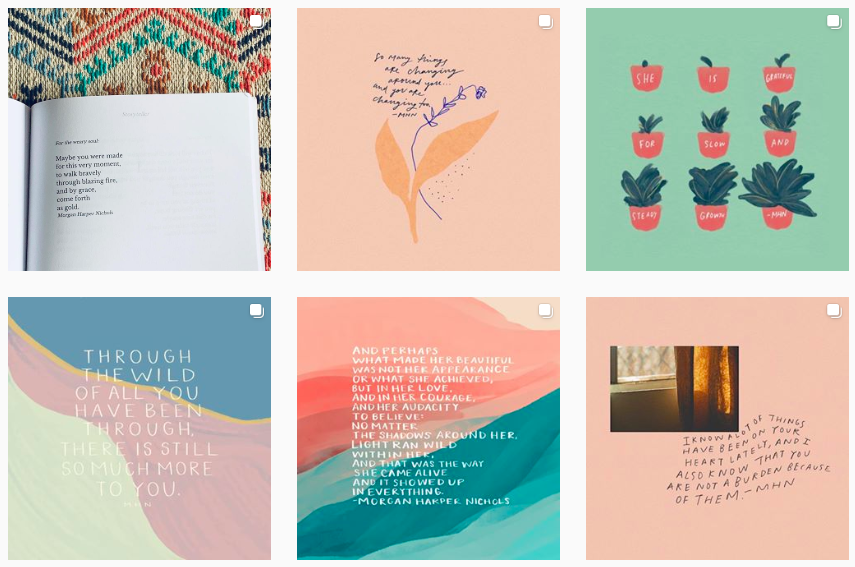- She Writes
- How She Writes Poetry in the Digital Age

National Poetry Month is upon us and we thought we would kick it off by discussing the state of poetry in today's world.
As with all forms of writing, poetry has undergone something of an evolution with the dawn of social media, self-publishing and the busyness of modern day life.
Some critics would call the art form dead while others might consider it more accessible than ever before.
Social Media and Poetry
It should come as no surprise that social media has given rise to InstaPoets and couplet-filled Tweets. Social media has become a place where all forms of art are shared and poetry is no different.
Not only does it give everyone a forum for publishing their work and their thoughts, but it also gives artists the opportunity to build audiences that attract publishers.
One of the most notable cases of this success is Rupi Kaur whose gorgeous Instagram feed (and 3.8 million followers) gave way to the bestseller Milk and Honey. This book of short poems accompanied by black and white sketches sold over 2 million copies. Amazing for any debut book... outrageous for a book of poems.

An article in the New York Times covering Rupi Kaur's success sited a statistic that found "the number of Americans who had read at least one poem in the past year had declined by 45 percent between 2002 and 2012."
Though there are a lot of critics who say this anyone-is-a-poet social media trend is bad for literature, there's also reason to believe social media might save the art by exposing it to those who are more likely to pick up their phone than they are a Walt Whitman collection.
Self-Publishing Poems
As easily as you can post poems to social media is about as easily as you could publish your own book of poems. A collection usually consists of anywhere from 30 - 100 poems and those already sharing on social media could compile their already existing work from their feed, get a cover designer involved and have a title available.
Again, while some may find this to be a deterioration of an institution, others see it as an opportunity.
In any genre, there will be indie publishing done well and self-publishing gone awry.
The point is, there are no longer gatekeepers when it comes to poetry. The trick is always to find your readers. If poetry is what pulls at your heart, there are now more ways to reach audiences than ever and sell to them.
Poetry doesn't have to be elite and unreachable. Just as fiction, self-help and all other forms of published work has evolved, poetry has too.

Authors like Jennae Cecelia have self-published and gone on to produce bestselling work on platforms like Amazon. Not only has she received over 160 reviews for just one of her titles, but she is ranked #20 in the category Women's Poetry for this book. Proving that while not every story will be Rupi Kaur's, poets can find success outside the traditional publishing space.
Getting People to Stop and Pay Attention to Poetry
The real problem though isn't whether or not social media is watering down what it means to be a poet or if self-publishing has removed the high-brow gatekeepers who were keeping the art pure. The problem is people are busy. Crazy busy. And inundated with content. So how do you get them to slow down and enjoy something as leisurely as poems?
The answer may lie in a multi-media approach.
Poems on Twitter are still pretty pure to their original form. Poetry on Instagram, however, has taken on a very visual approach. Getting people to stop scrolling and indulge in a poem is now as much about the words as it is about the aesthetics.
Black text on a white background might not be enough anymore. Artists like Morgan Harper Nichols have taken poetic language and merged it with great design and created something of a hybrid experience that can be enjoyed by poetry veterans and newbies alike.

Audio is also offering interesting opportunities for "older" media. Someone may not be able to stop and read a collection of poems, but they could possibly listen to a beautifully narrated audiobook while they cook. Smart speakers are in their infancy, but already, audiobooks are seeing a massive reemergence and thriving in a new marketplace.
One thing is for sure, if you're a poet, there's never been a more interesting time to explore the art.
Share what you think of this change in poetry in the comments below.
Writing Status Badges












Writing Status Badges












Featured Members (7)
Writing Status Badges


































La poesía como expresión literaria siempre existirá, siempre ha existido y está ligada al arte del pensamiento humano
Having been a promoter of poetry for almost 20 years I think that poetry is a staple in literary art forms. Because it does not pay big time does not minimize its value.
Interesting. I'm not a poet, but I appreciate poetry and would hate to see this art form lost.